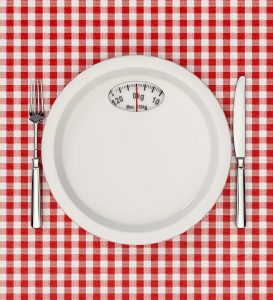 Fasting has gained a lot of attention for it’s health benefits, but not all types of fasting are alike. Some types of fasting can actually improve your metabolism, while others slow it down. What’s the difference? How does it work? It’s a matter of how often you fast, how long and the amount of calorie restriction you endure.
Fasting has gained a lot of attention for it’s health benefits, but not all types of fasting are alike. Some types of fasting can actually improve your metabolism, while others slow it down. What’s the difference? How does it work? It’s a matter of how often you fast, how long and the amount of calorie restriction you endure.
If you fast for long periods continually, your body adjusts and expends fewer calories.
If you’re burning a specific amount of calories a day, then suddenly lowers the amount chronically, for several days in a row or continuously, your body clamps down to protect the reserve by slowing its metabolism to ensure you have adequate fat for fuel for vital functions. However, intermittent fasting, which is a short fast that lasts approximately 12 to16 hours and then eat normally the rest of the time, you maintain enough calories to keep your metabolism functioning optimally, while giving your
You need to vary the type of fasting you do.
Initially, you’ll see great improvements. You’ll have more energy and lose weight. However, if you chronically fast, you might find that you’re not only gaining weight, you’re also tired. What’s the reason? Your body suddenly realizes it’s not only low on fuel, it also isn’t getting nearly the amount of fuel it needs. It’s like having the gas tank registering empty and trying to nurse your vehicle to the next gas station. You don’t speed or turn on the air, but try to drive slowly to conserve the gas. You need a feast day if you’re fasting frequently over 16 hours at a time. Feast days don’t mean gorging yourself on high calorie foods with gobs of sugar, but eating normal healthy meals.
Occasional fasts or intermittent fasting can make you healthier if done correctly.
Long term fasts will definitely slow your metabolism and so can short term fasts, those that last four days or longer, when done too often. The best way is to fast occasionally if you’re doing more than a 16-hour fast or use an alternate method of eating within an eight to twelve hour window and fasting the rest of the day. It can actually boost your metabolism, compared to traditional calorie restriction diets, plus provide other health benefits, such as diseases and conditions associated with inflammation, like asthma, MS, stroke, arthritis and Alzheimer’s.
- Intermittent fasting, short term fasts or eating within an 8 to 12 hour window, can help you live longer and look younger than you are, even without cutting down on the number of calories consumed, according to animal studies and some human studies.
- Some scientists believe that intermittent fasting using the 12-16 hours of fasting and eating the rest of the time, gives your digestive system a rest, improving fat burning. It aids in blood sugar regulation and increases the activation of stem cells.
- If you’re doing the 16/8 style of fasting, make sure when you eat, you load up on healthy food with plenty of vitamins and minerals.
- Long term fasts can definitely slow your metabolism, short term, intermittent types of fasts probably won’t, as long as you don’t fast repeatedly or use the alternate fasting technique of eating within an 8-12 hour period.
For more information, contact us today at Prime Fitness Studio
